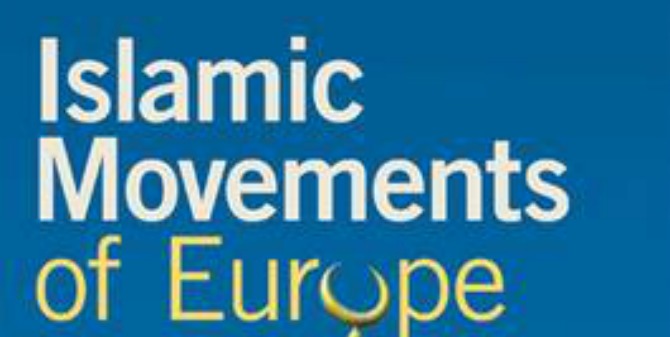The picture of Aneurin Bevan which emerges from Nicklaus Thomas Symonds’ book is of a figure who was changeable, emotional, and often far from perfect, but at times a political force of nature, writes Calum White. Unquestionably the best biography yet.

NYE: The Political Life of Aneurin Bevan is the latest biography of one of Labour’s most famous figures. Nicklaus Thomas-Symonds’ contribution to the scholarship is certainly both well-timed and necessary. Past biographies have proven problematic; Michael Foot’s attempt (in two volumes!) smacked at times of worship, whilst John Campbell’s Nye Bevan and the mirage of British socialism proved about as balanced as its title suggests.
The book’s foreword by Neil Kinnock emphasises the timely nature of this new contribution; with the present-day Labour Party perpetually suffering from an identity crisis, Thomas-Symonds’ examination of Bevan provides a new insight into a figure who has come to be regarded as one of the heroes of Labour-past to many on the political left.
The biography is broadly split in to three periods. It starts with Bevan’s time in local politics and his subsequent rise to parliament. It then looks at the run up to the Second World War and the war itself, before the final section examines the aftermath of the war, his time in cabinet, and his time spent in opposition. At times, this account does clearly seem to align more with Foot’s reverential representation of Bevan than Campbell’s condemnation. Thomas-Symonds describes Bevan as ‘a great British statesman, the twentieth century’s most outstanding government minister’, going on to claim that the ‘National Health Service that he created on 5 July 1948 is no mere monument to his success. Rather, it is a living, breathing example of his democratic-socialist principles.’ In spite of such clearly apparent admiration for Bevan, however, the author has made a commendable effort at balance throughout. The picture which emerges is thus of a figure who was changeable, emotional, and often far from perfect, but at times a political force of nature.
Thomas-Symonds relies predominantly on first-hand interviews as well as some other recently released sources to provide a biography which spans from his birth in South Wales in 1897 to his death in 1960. Whilst the biography is ostensibly a comprehensive look at Bevan’s life, its real focus and strength lies with the examination of his political life. It is particularly welcome to see more focus placed on Bevan’s experiences in local politics – an area which has hitherto been neglected, yet which Thomas-Symonds argues is of central importance for our understanding of his political career. There is much to support this view. At times, historians have understated or forgotten this period of Bevan’s life, focusing instead on his time spent as a young miner in a South Wales colliery as the key formative experience in his early political ‘awakening’. This new biography argues instead that the period from 1919 until the spring of 1934, when he stood down as a county councillor, were ‘the most important in his life in terms of shaping the politician he became’.
Moving on to the later sections of the book, which examine the more famous Bevan who sparred tenaciously with Churchill and won the admiration of many on both sides of the house, the arguments that Thomas-Symonds makes and his representations of Bevan are enhanced by taking this formative period in to account. Despite this, there are times when the author could emphasise the importance of this earlier period more. In his chapter on ‘Bevan’s record on Housing, 1945-51’, for example, Thomas-Symonds’ arguments could be stronger with more emphasis on the experience which followed the First World War, and which he has himself argued was one of the key issues in the young Bevan’s political consciousness. This is perhaps in part due to the author’s overwhelming concentration on cabinet and other governmental sources, as well as a more general neglect of the expansive historiography detailing the myriad complexities of social housing provision and reform after both wars and during the twentieth century more generally. Without discussion of this wider development, the impact of Bevan himself – the century’s most outstanding government minister, remember – is not always clear. Instead, it would have been enlightening to examine Bevan’s political contributions in the period which followed the first war and highlight continuities or inconsistencies, which could help to emphasise the differences and similarities between the idealistic young politician and the older cabinet minister. This is not to say that such comparisons are wholly lacking from the work, only that at times there appear to be avenues of unexplored potential.
Nevertheless, the primary research is at times impressive. Thomas-Symonds frequently manages to debunk many of the more histrionic or outlandish stories – which inevitably spring up around such controversial figures in the public eye – by noting the paucity of any supporting evidence or by presenting evidence to the contrary. This is particularly true of Bevan’s relationships with Beaverbrook, and with his wife, Jennie Lee. Whilst this biography’s evidential basis is frequently first-hand accounts and interviews, for the most part there is enough contextual or other evidence in support to make these accounts credible. Despite this, the study would have benefitted greatly from being more regularly tied in to wider studies of the period; whilst the level of primary research is often commendable, it is not always effectively placed in the context of the wider secondary literature, and Thomas-Symonds’ findings and arguments would be more convincing or useful when viewed in light of that scholarship.
Overall, this new biography can take its place as the current most authoritative account of the political life of Aneurin Bevan – one which has been long overdue. Even with a slight tendency at times to perhaps over-emphasise Bevan’s importance or influence, Thomas-Symonds’ account of Bevan is by the far the most balanced available, and there is enough original evidence and argumentation to make this new contribution worth a read for any scholar of post-war political thought, labour history, or histories of social and economic policy.
The book will also be of interest to a wider audience; it is well written and accessible throughout, and would be of particular interest to those interested in the politics of post-war reconstruction, and the history of Labour and the political left more generally. Its real strength probably lies as a popular history, of which it is a very good example. Thomas-Symonds’ biography of Bevan is not perfect, and this account is far from exhaustive, but it is unquestionably the best offering yet.
Calum W. White is a graduate of the University of Aberdeen and the University of Oxford and is currently the Peter Storey Scholar at Balliol College, Oxford, reading for a DPhil in History. His current research is concerned with the relationship between the experience of the First World War and the formation and dissemination of political discontent in British society. You can find him on Twitter at @CalumWWhite. Read more reviews by Calum.







